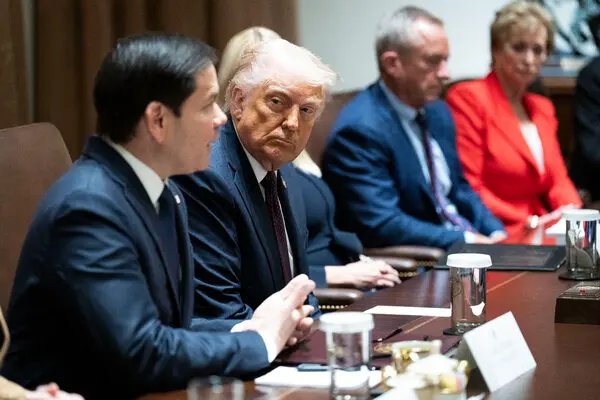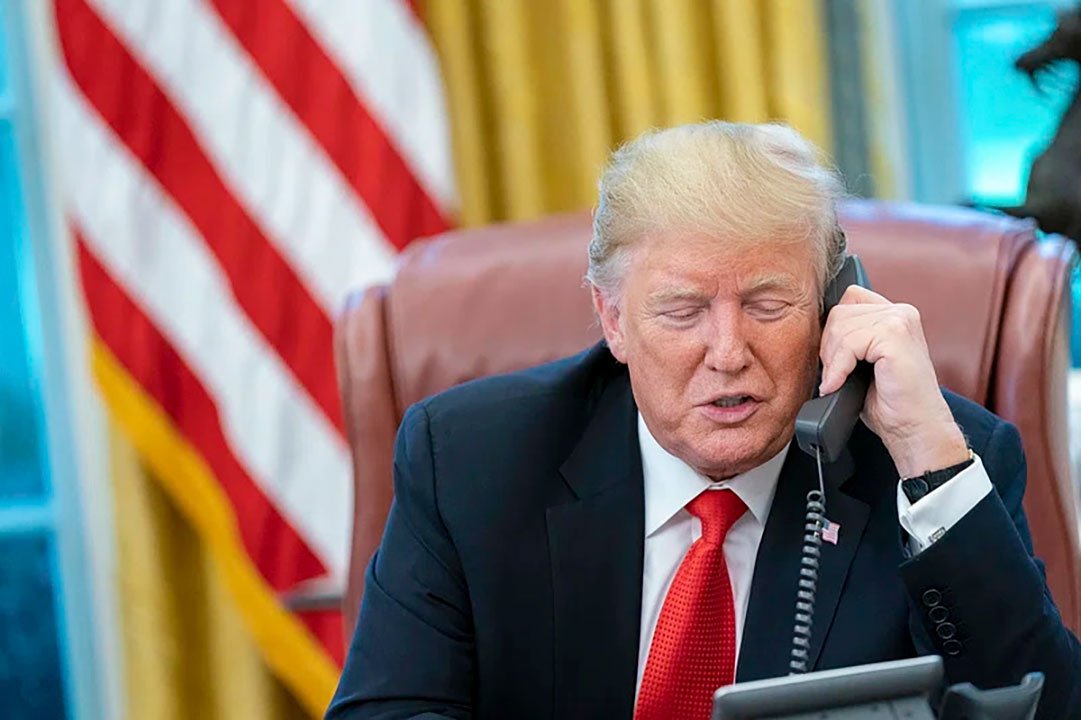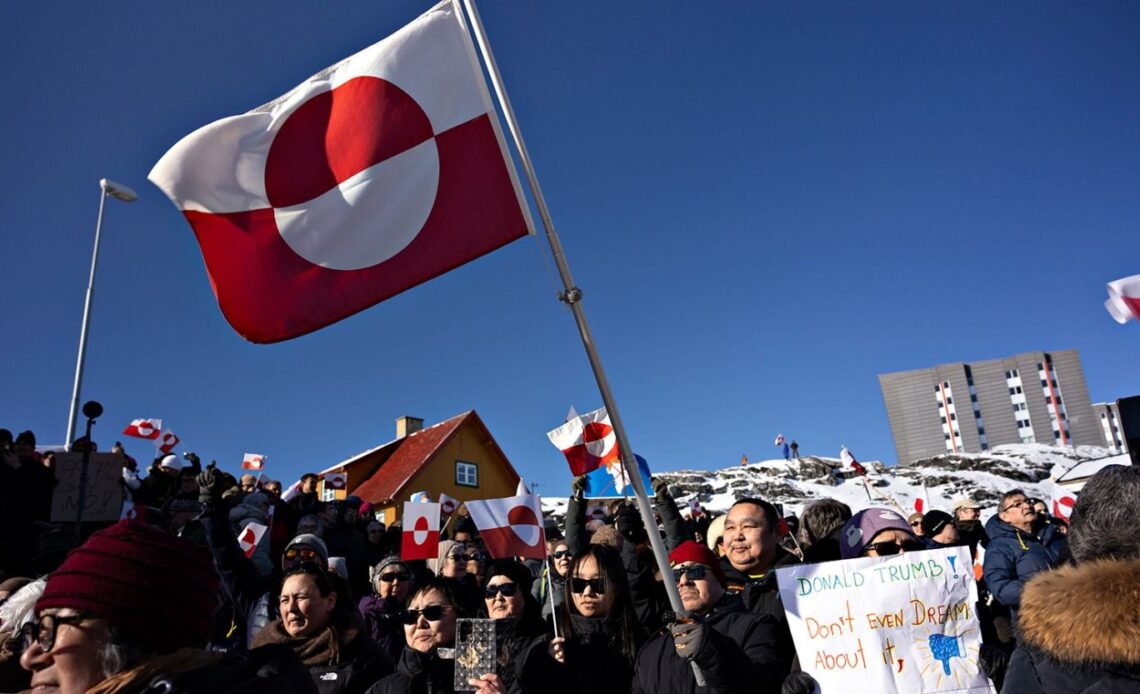In recent years, the geopolitical significance of Greenland has drawn increasing attention from major global powers, particularly the United States. Amid rising concerns about Arctic sovereignty and strategic positioning, former U.S. President Donald Trump clarified that a U.S. delegation’s visit to Greenland was not intended as a provocation. This statement came in response to speculation that the visit was part of a broader strategy to counteract China’s and Russia’s growing influence in the Arctic region. In this article, we explore the details of the U.S. delegation’s visit, the motivations behind it, and the broader implications for U.S.-Greenland relations and international geopolitics.
## The Background of the Visit

The visit by the U.S. delegation to Greenland comes at a time when the Arctic has become a focal point of international interest. Greenland, an autonomous territory of Denmark, holds significant strategic importance due to its vast natural resources and its location along major Arctic shipping routes.
During his presidency, Mr. Trump had previously expressed interest in purchasing Greenland from Denmark, a proposal that was met with strong resistance from Danish officials. Although this idea was ultimately dismissed, the U.S. has continued to deepen its engagement with Greenland through economic investments, diplomatic visits, and security cooperation.
### U.S. Interests in Greenland
The United States has several key interests in Greenland, including:
1. **Strategic Military Presence** – Greenland is home to Thule Air Base, a critical U.S. military installation that plays a pivotal role in missile defense and Arctic surveillance.
2. **Natural Resources** – The island possesses abundant reserves of rare earth minerals, which are essential for advanced technologies, including defense systems and green energy solutions.
3. **Arctic Shipping Routes** – With the effects of climate change, Arctic ice is melting, opening up new maritime trade routes that could alter global shipping dynamics.
4. **Countering Foreign Influence** – Both China and Russia have increased their Arctic activities, prompting the U.S. to strengthen its position in the region.
### Official Statements and Clarifications

To address concerns about the nature of the visit, Mr. Trump stated, “The United States has a longstanding interest in Greenland, but our engagement is focused on mutual cooperation and development. This visit is not meant to provoke anyone but rather to strengthen our partnership.”
U.S. officials emphasized that the visit was part of ongoing diplomatic efforts to support Greenland’s economic development, particularly in infrastructure, education, and environmental sustainability. They reiterated that there was no military agenda tied to the delegation’s discussions with Greenlandic and Danish representatives.
## International Reactions
### Denmark’s Response
Denmark, which maintains sovereignty over Greenland, welcomed the U.S. delegation’s visit as a sign of growing cooperation. However, Danish officials also made it clear that any U.S. involvement in Greenland must respect Denmark’s authority over the territory. Foreign Minister Lars Løkke Rasmussen noted, “We appreciate the continued U.S. interest in Greenland, but we expect all engagements to align with our shared values and interests.”
### Greenland’s Perspective

Greenland’s government has been open to increased collaboration with the United States, particularly in economic development. Local officials have expressed interest in diversifying their economy beyond fishing and tourism, and U.S. investments in infrastructure and mining could provide significant benefits. However, Greenlandic leaders also stressed that their autonomy and environmental concerns must be respected.
### Russia and China’s Concerns
Russia and China have both expanded their presence in the Arctic in recent years. Russia has bolstered its military infrastructure, while China has declared itself a “near-Arctic state” and invested heavily in Arctic mining and shipping projects. The U.S. delegation’s visit to Greenland was viewed by these nations as part of Washington’s broader strategy to counter their influence.
Russian officials criticized the visit, accusing the U.S. of attempting to militarize the Arctic. Meanwhile, Chinese state media warned that increased U.S. involvement in Greenland could lead to geopolitical tensions.
## Implications for Future U.S.-Greenland Relations

### Strengthening Diplomatic and Economic Ties
The visit underscores a broader trend of deepening U.S.-Greenland relations. Moving forward, the U.S. is likely to:
– Expand economic investments in Greenland’s resource sector.
– Enhance scientific collaboration on climate change and Arctic research.
– Support infrastructure development projects to boost Greenland’s economic growth.
### Challenges and Considerations
Despite these opportunities, challenges remain:
– **Balancing Interests** – Greenland must navigate its relationships with the U.S., Denmark, and other global players while maintaining its autonomy.
– **Environmental Concerns** – Greenland’s natural environment is fragile, and large-scale resource extraction could have significant ecological consequences.
– **Geopolitical Risks** – Increased U.S. engagement in Greenland could heighten tensions with Russia and China, potentially escalating Arctic disputes.
## Conclusion
Former President Donald Trump’s assurance that the U.S. delegation’s visit to Greenland was not intended as a provocation highlights the complex dynamics of Arctic geopolitics. While the U.S. seeks to strengthen its presence in Greenland for strategic and economic reasons, it must navigate diplomatic sensitivities with Denmark, Greenland, and other global players. As Arctic competition intensifies, Greenland is poised to become an increasingly critical focal point in international affairs. The challenge ahead lies in balancing economic development, environmental sustainability, and geopolitical stability in this strategically vital region.
